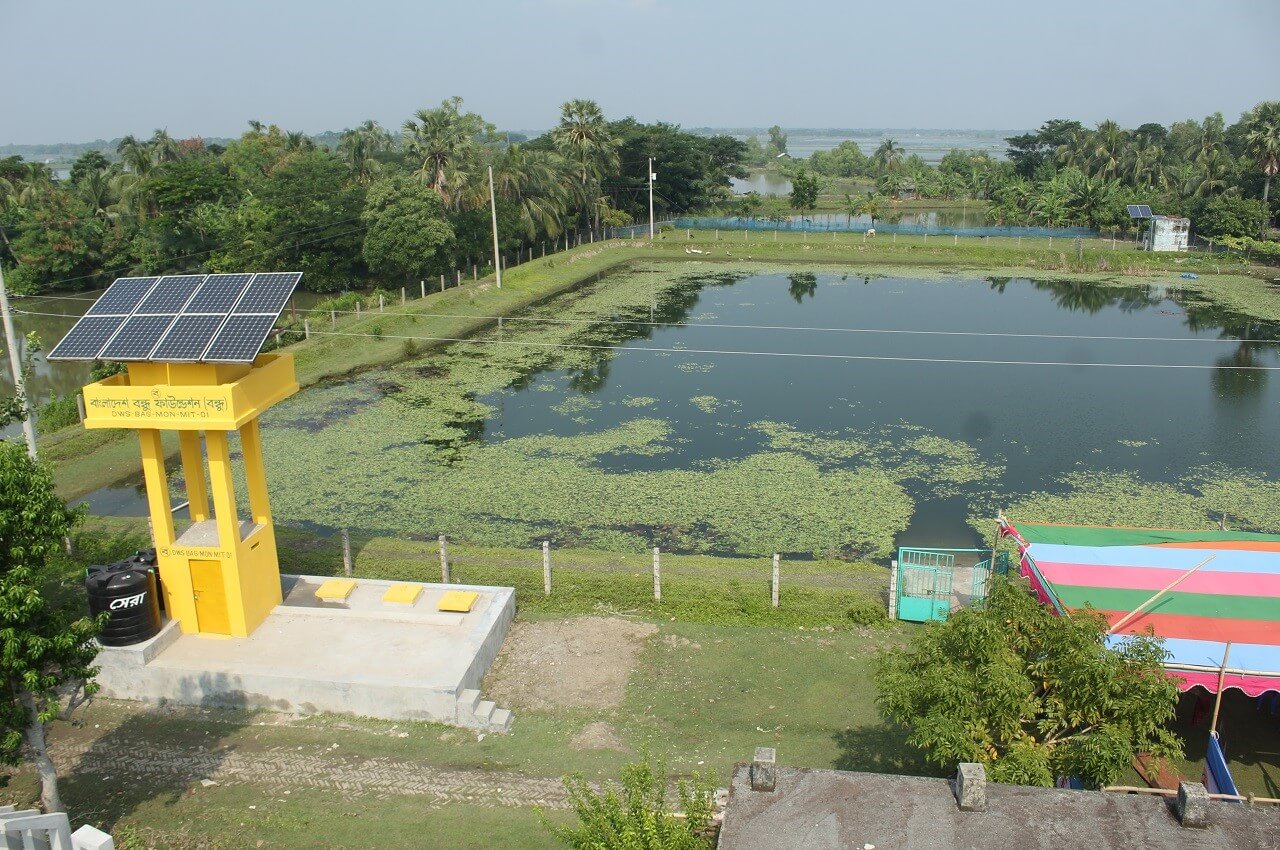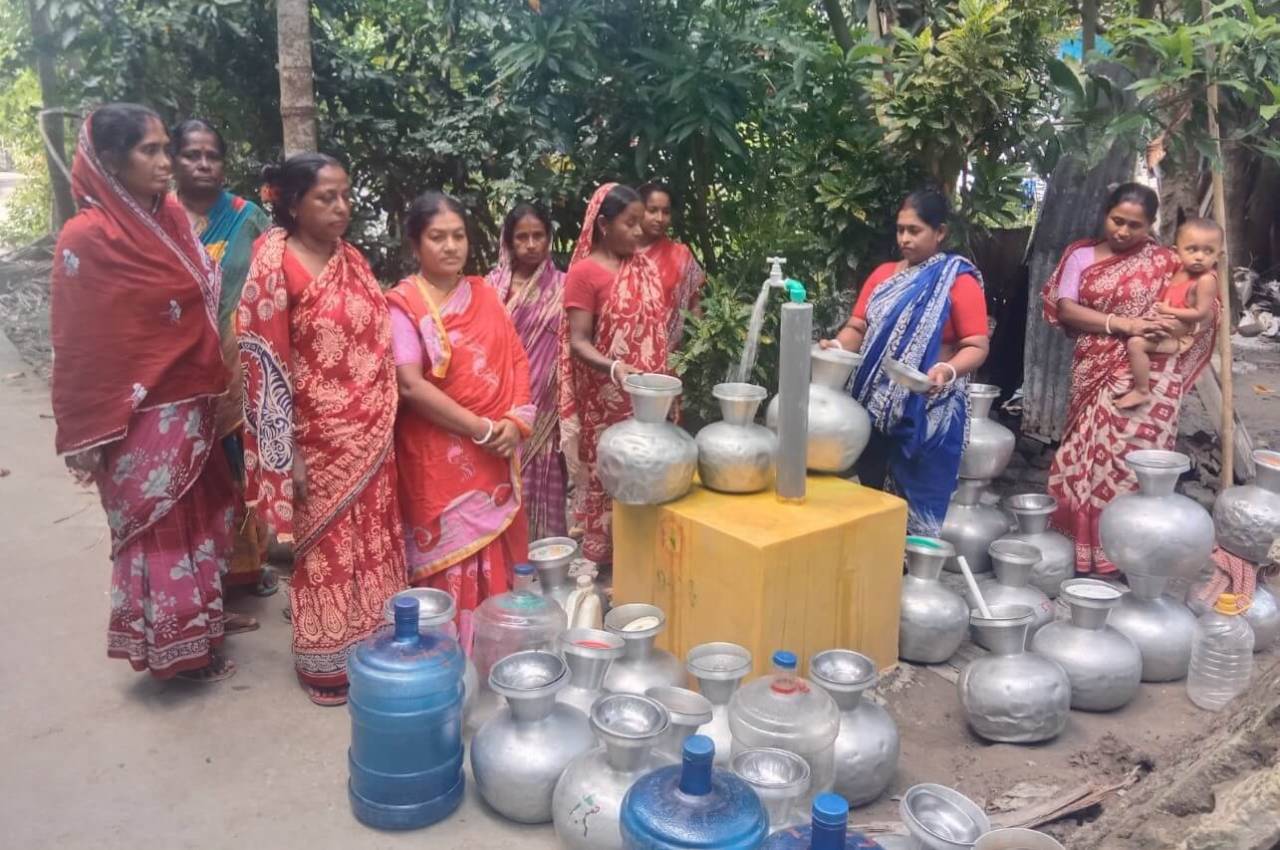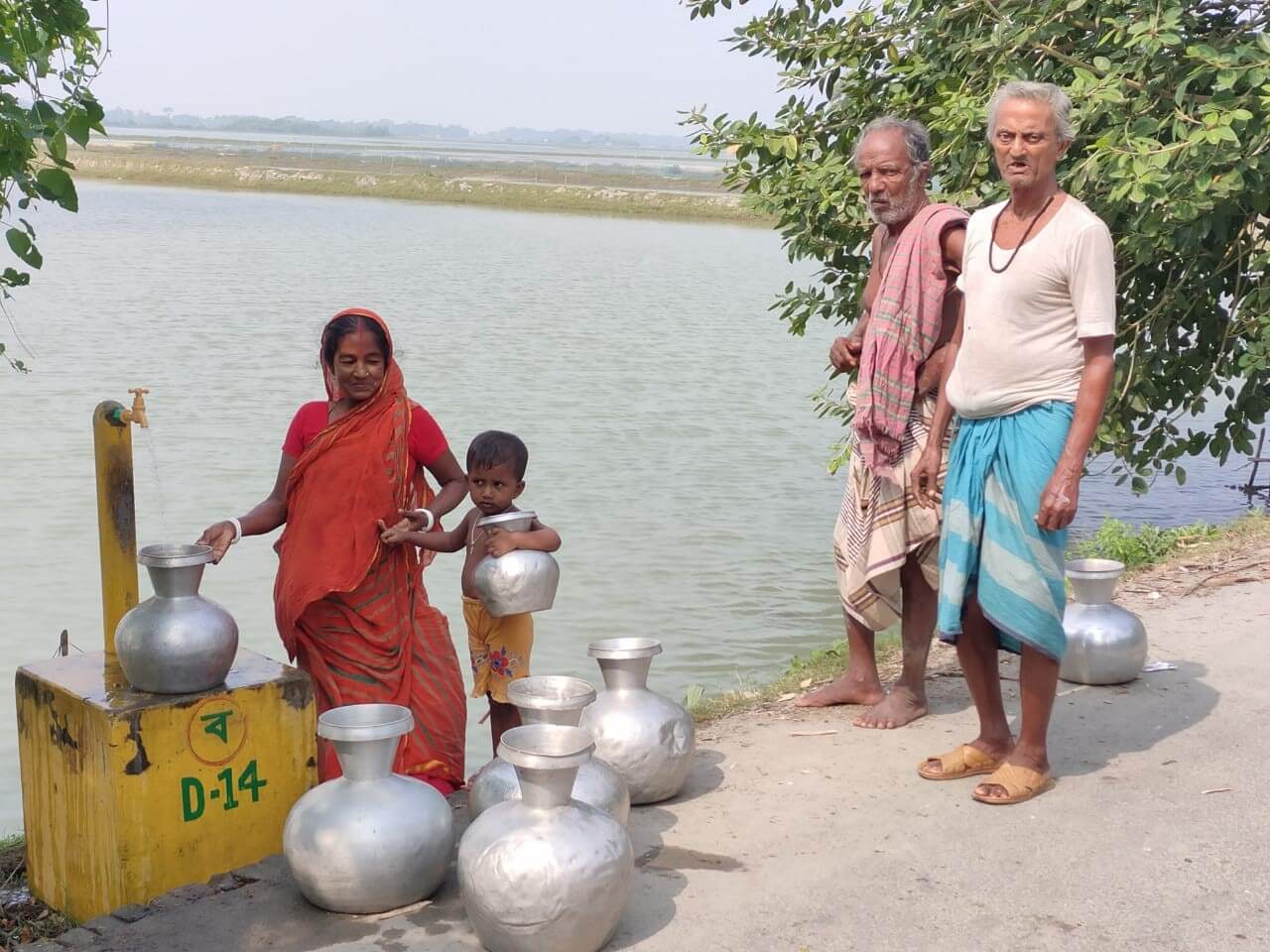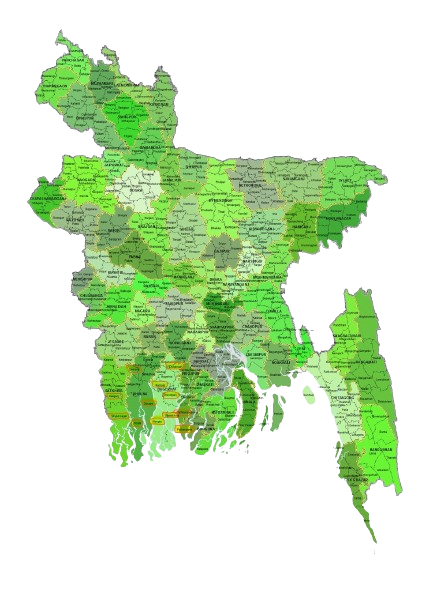In the coastal areas of Bangladesh, there is an acute shortage of clean water. Due to the limited number of groundwater reservoirs, people are mainly dependent on surface water from ponds. Natural disasters, to name a few- storms, and tidal surges are destroying surface reservoirs. In addition to this, the underground reservoirs are also getting damaged due to the intrusion of saline water. The salinity of groundwater in various parts of the southwest coast of Bangladesh is increasing day by day. Water salinity is extensive in many coastal areas. Due to the polluted and salty water of the pond, people are suffering from various water-borne diseases like diarrhea, cholera, and skin diseases. As a result of climate change, sea levels are rising and the intensity of storms, tidal surges, heavy rains, droughts, etc. is also increasing. Consequently, the drinking water crisis is intensifying. In this situation, it is crucial to provide clean drinking water in the coastal areas.
In addition to coastal areas, the clean water crisis affects various regions across the country. Many areas experience water contamination due to high levels of iron and arsenic. Excessive iron in the water can result in a metallic taste, a brown discoloration, and an unpleasant odor. More critically, arsenic pollution poses severe health risks and is a significant concern.
The crisis of clean water is acute in the coastal areas of Bangladesh after Sidr and Aila. The German development agency GIZ set up 122 potable water supply plants in 18 upazilas of 6 coastal districts (Satkhira, Khulna, Bagerhat, Pirojpur, Barguna, and Gopalganj) on an emergency basis during 2011-2015.
With the technical assistance of GIZ, CDMP set up 16 more similar plants. But, most of the plants became unusable after the end of the project period due to a lack of maintenance and necessary repairs. In this situation, at the request of the locals, the Bangladesh Bondhu Foundation (BONDHU) took the initiative to repair the plants. In this context, on 14 February 2022, the Bangladesh Bondhu Foundation (BONDHU) signed a Memorandum of Understanding (MoU) with the Sustainable and Renewable Energy Development Authority (SREDA) and the Department of Public Health Engineering (DPHE) of the government.
According to the memorandum, BONDHU repaired 123 damaged plants. BONDHU will operate these plants for 15 years and ensure the supply of clean water to the people of the area. This project reduces carbon emissions significantly.
The water collected from any source e.g. pond water or groundwater is pumped into the overhead tank for treatment. In the initial stage, this water is filtrated with a pond sand filter. In the second stage, the floating materials of water in the reserve chamber are granulated and separated after treatment with alum. After separation, the water passes through an activated carbon filter. Activated carbon effectively removes odors, and color from the water. Finally, the water is sterilized using chlorine (bleaching). The treated water is supplied from overhead tanks through pipelines to the neighborhoods from where the beneficiaries of the area collect drinking water. For environmental sustainability, the water is pumped by renewable solar-powered pumps.
Overall supply activities are conducted in consultation with the committee comprising local dignitaries from each plant area to ensure the participation of the beneficiaries.
Project areas: Satkhira, Khulna, Bagerhat, Pirojpur Barguna, Tangail, Naogaon, Chuadanga, Kustia, and Meherpur Districts.
Number of plants: 177




Following the project's success, the demand for clean water supply plants has significantly increased. BONDHU began establishing 177 plants in regions where the groundwater contains iron and is free from arsenic. In response to the growing need, BONDHU is expanding its project to new areas, including Satkhira, Khulna, Bagerhat, Pirojpur, Barguna, Tangail, Naogaon, Chuadanga, Kustia, and Meherpur districts.
Reach out us if you are committed to working for climate action and intend to bring a positive change in the environment of Bangladesh through mitigation and adaptation to climate change and want to fight environmental degradation together.